
info@lrfpk.org
Call Us
+92-21-35388695

info@lrfpk.org
+92-21-35388695
Empowering women & girls is the key to social transformation. Empowerment includes the action of raising the status of women through education, raising awareness, literacy, and training. Women’s empowerment is all about equipping and allowing women to make life-determining decisions through the different problems in society.
The Islamic Republic of Pakistan is a country in South Asia. It is the world’s 5th most populous country with a population exceeding 212.2 million. Be area, it is the 33rd-largist country, spanning 881,913 square kilometers (340,509 square miles). As per the sixth Population and Housing Census-2017, female population stands for 49% of the total population. In Pakistan 64% of the population is below the age of 29 and 30% between 15 and 29 years.
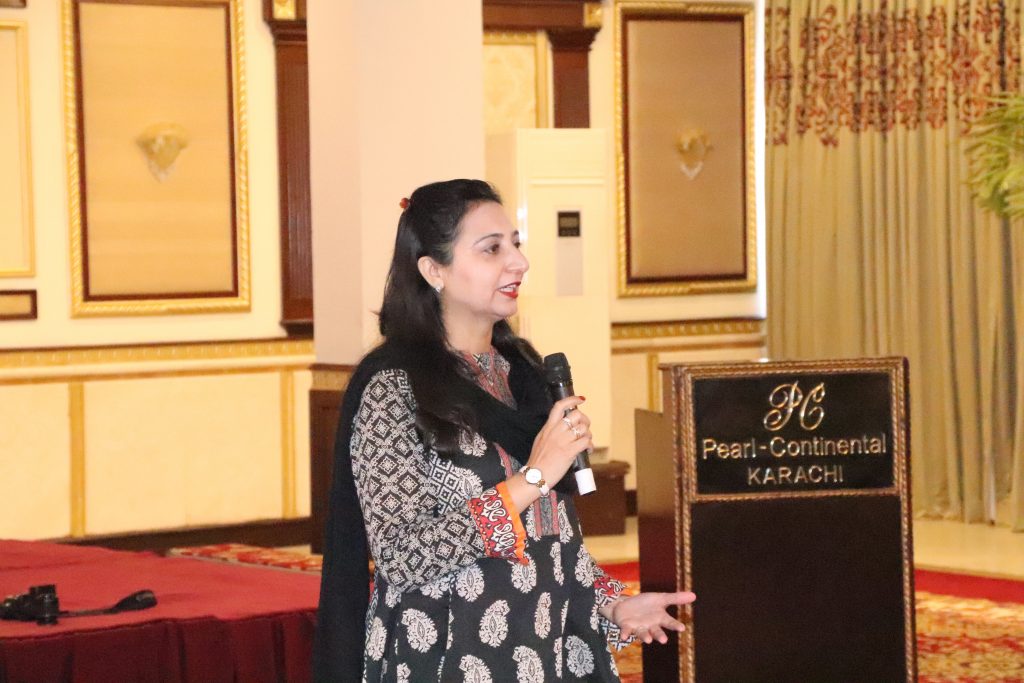
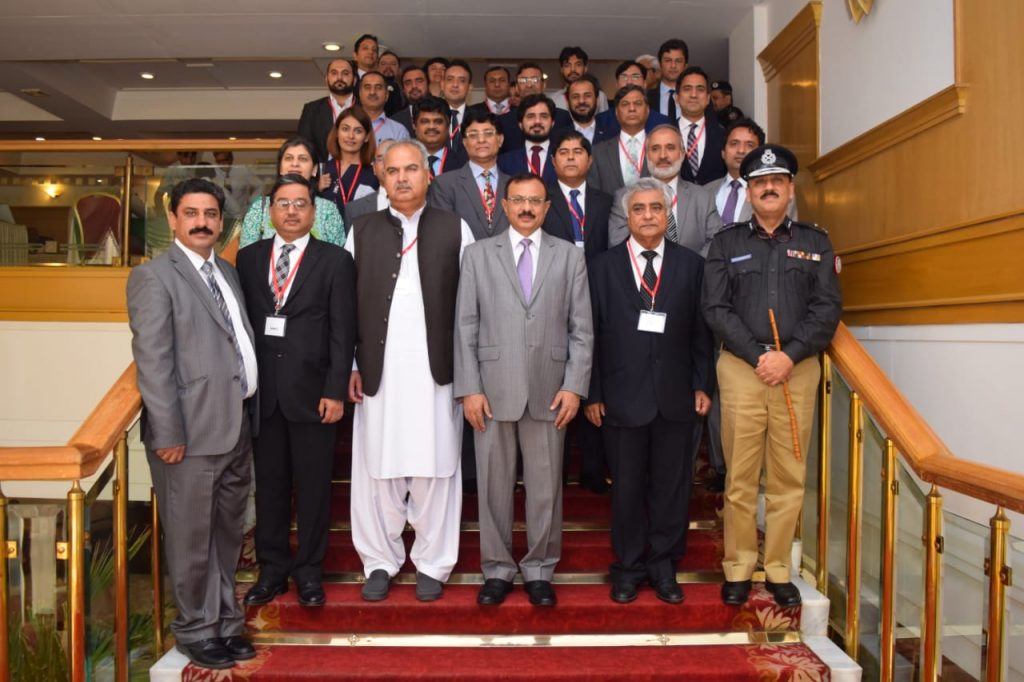
The Constitution of Pakistan, 1973 provides for the equality of women in its various articles. Article 3 notes that the state is committed to eliminate all sorts of exploitations. Article 25(1) guarantees that “all citizens are equal under the law and are entitled to equal protection of law.” Article 25 (2) further states that “there shall be no discrimination on the basis of sex alone.” Article 27 prohibits discrimination on the basis of sex, race, religion, or caste for government employment. Article 34 contemplates that “steps shall be taken to ensure full participation of women in all spheres of national life.” And Article 38 (a) requires the state to “secure the well-being of the people, irrespective of sex, caste, creed or race, by raising their standard of living.” The above provisions provide adequate constitutional guarantees for the protection of women’s rights in Pakistan.
Pakistan has signed/adopted a number of international commitments related to gender equality, women rights and empowerment such as Universal Declaration of Human Rights, Beijing Platform for Action, and the Convention on the Elimination of all forms of Discrimination against Women and Sustainable Development Goals 2030. Gender equality and women empowerment is at the core of the SDGs 2030 agenda. In response, Pakistan has made policies/laws such as National Policy for Development and Empowerment of Women, Protection against Harassment of Women at Workplace Act, Criminal Procedure Code Amendments (in the name of honour and offences relating to Rape), National Plan of Action on Human Rights, and other Gender equality policy frameworks and women empowerment initiatives.

After the 18th Amendment in the Constitution of Pakistan, provinces have power of enactment of new laws and amendments in existing laws. Recently, the Sindh Assembly has passed laws for the protection of women i.e. The Sindh Women Harassment at Workplace Act; The Sindh Child Marriages Restraint Act; The Sindh Human Rights Commission Act; and The Sindh Commission on the Status of Women.
Despite these pro-women developments, Pakistan is one of the lowest ranking countries on gender equality in the world and Pakistan often seem to be denying basic human rights where women face gender-based violence. In Pakistan most of the women and girls are unaware of their basic rights due to illiteracy and lack of awareness of their rights such as right to inherited property, etc.
LRF is working in Pakistan for the gender equality and women empowerment since 2007. LRF promote SDGs 2030 and its Goal Number 05 on Gender Equality in Pakistan. Through research, advocacy and lobbying, LRF advocates with governments on women rights and assist them in pro-women legislation. LRF not only advocates for the rights of women but it also believes that the values of gender mainstreaming are required in all its interventions. LRF strongly believes that women should legally-socially- economically be empowered so that they can live their lives with self-respect, confidence and dignity. LRF use to carryout policy research and advocacy by highlighting anomalies in the prevailing discriminatory legislative frameworks and demand pro-women laws and policies.
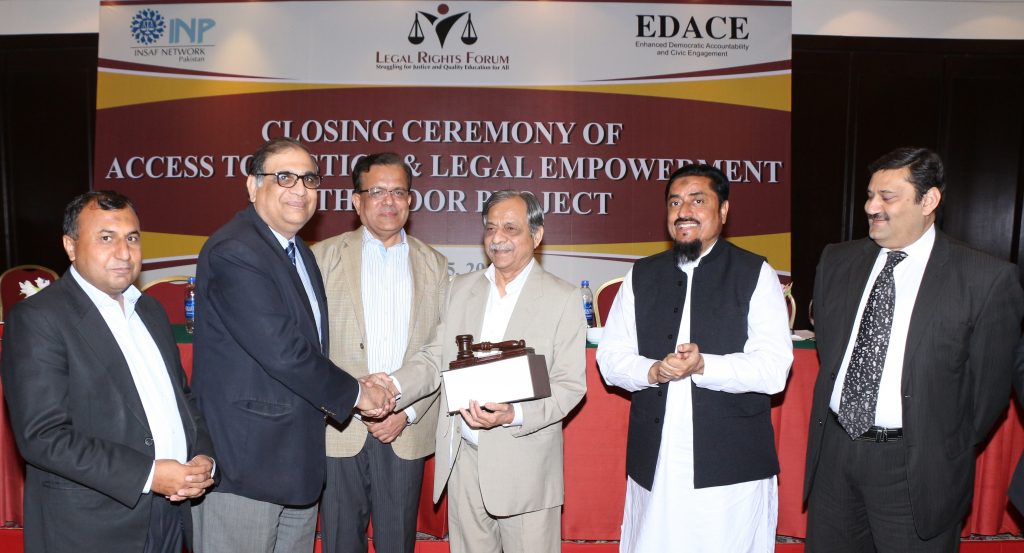
On supply side, LRF has been part in developing women related laws, policies and rule of businesses (RoBs) such as The Sindh Child Marriages Restraint Act2013, The Sindh Human Rights Commission and The Sindh Commission on the Status of Women.
LRF, through its representatives, has been appointed /nominated by the different departments and institutions of Government Sindh as member of various technical committees i.e. Provincial Monitoring Committee under the SCMRA 2013, Legal Committee of Sindh Commission on the Status of Women, Gender Committee of Sindh Human Rights Commission and the Prison Monitoring Committee. LRF represents civil society in all these committees and provides technical legal advice with respect to protecting women rights and gender equality.
Similarly, on demand side, LRF has engaged more than 25,000 poor women in communities for legal rights awareness. LRF has trained over 500 women as community paralegal for creating strong demand for their rights among poor and venerable communities. LRF’s District Legal Aid Centers (DLACs) and LRF Fellow Advocates nationwide has provided legal aid, legal assistance, psychosocial support, counseling services to more than 2,000 poor, marginalized women and GBV victims. Through a toll free no 0800-8888, LRF has provided legal advice poor women in communities.
During 2011, LRF launched “Supporting Women to Join Law Enforcement Agencies” as an internship program for female fresh law graduates/final year law student in Sindh. 169 women fresh law graduates got training/internship at LRF and 13 of them become part of judiciary as a judicial magistrate/family court judge/civil judge in Sindh, Punjab and Baluchistan. 05 joined law enforcement agencies and 11 joined the prosecution Department.


LRF has built the capacity of Women officials in Police, Prison, Judiciary and Prosecution departments on Pro-women international commitment, provincial laws and policies. Recently, LRF conducted Training Workshops by involving staff of the Women & Children Support Desks in 11 districts of Sindh (South, West and East Zone of Karachi, Jamshoro, Mirpurkhas, Umerkot, Shaheed Benazirabad, Sukkur, Larkana, Jacobabad & Shikarpur).
LRF has done research and has come up with a Training of Trainer’s Manual on Legal Empowerment of Women in Sindh. Through training workshops, LRF capacitated 150 women officials of various CSOs on Legal Empowerment of Women in Sindh.
LRF has played role in strengthening networks on women rights. LRF is founder of some women related networks i.e. Women Rights to Land Network, Women Lawyer Network, Women Legal Protection Network and LRF is also part of many national and provincial women and gender responsive related networks i.e. Gender Coalition Pakistan, Alliance Against Child Marriages, Child Rights Movement and Ending Violence Against Women and Girls (EVAWG) Alliance.
Currently, LRF is an elected secretariat of networks i.e. EVAWG Alliance-Sindh Chapter, Pakistan Forum on Democratic Policy (PFDP)-Sindh Chapter, and Pakistan Development Alliance on SDGs 2030.
Every year, LRF celebrates International Women Day as well as 16 Days of Activism against GBV. LRF organizes wide-range of activities focusing on ending violence against women and combating the gender based violence at the grass roots level.
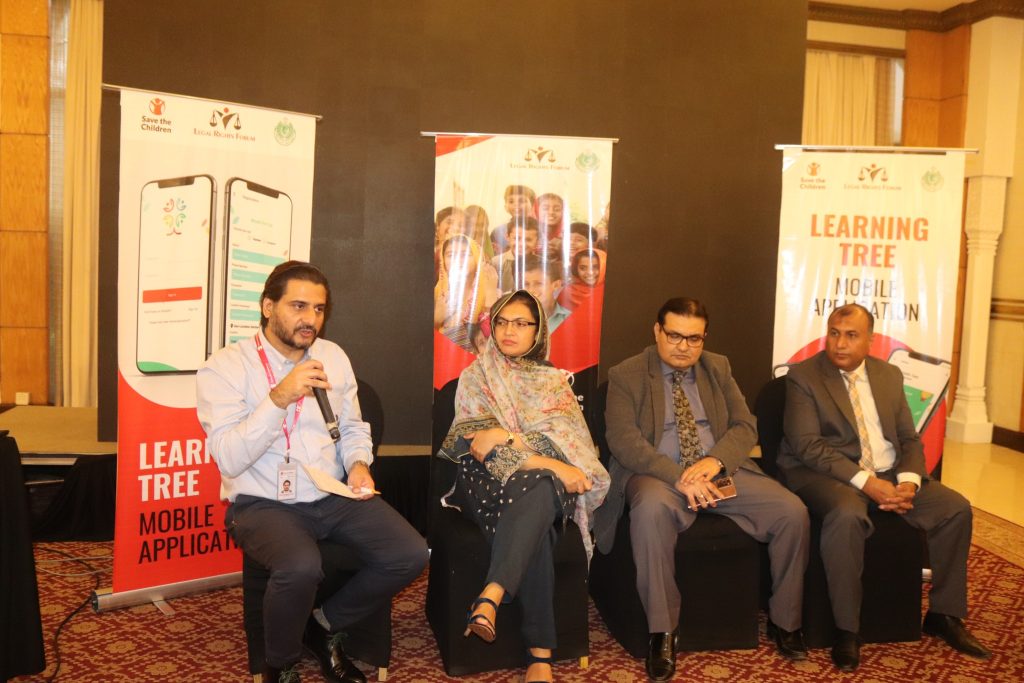
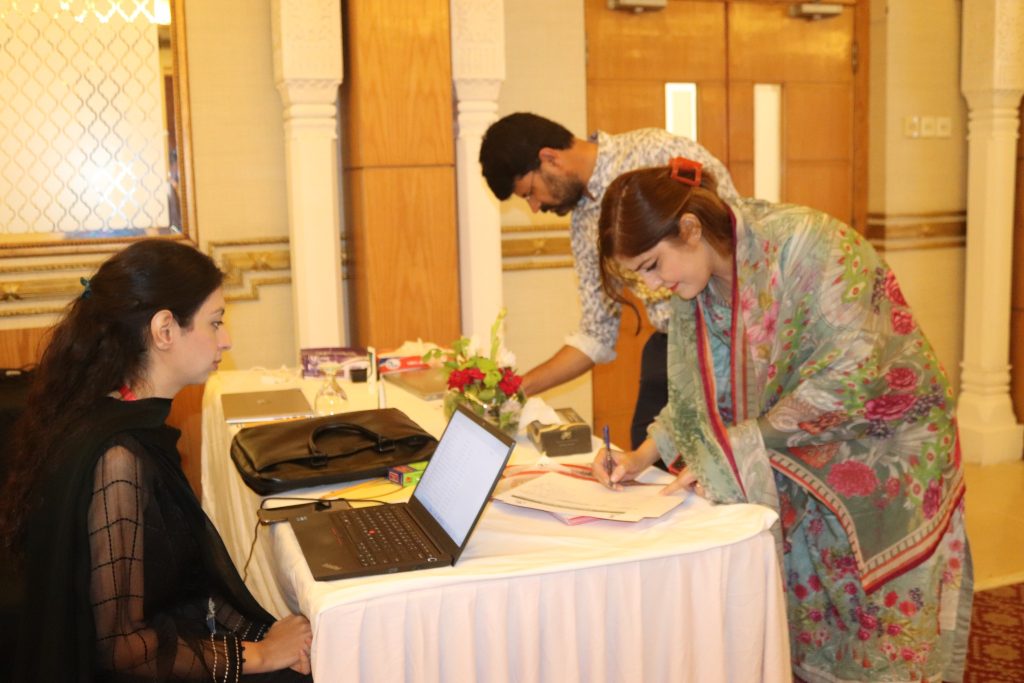
LRF launched a massive Women Rights to Land Campaign in Sindh. In this regard, LRF initiated massive legal awareness campaign through legal clinics, leaflets and focused group discussion for the implementation of the public land distribution policy of government Sindh, 2008. The purpose of this campaign was to sensitize the government of Sindh to develop the proper mechanism for receiving the documentation fee from the public land grantees; and also to advocate to Government of Sindh to initiate third phase of land distribution among women landless haris in Sindh.
LRF organized a 2-days training workshop on enhancing capacity of women workers Leadership on September 22-23, 2015 of selected women leaders in KATI, Karachi. In this training workshop 16 women workers leaders were selected out of 149 trained women workers in KATI, Karachi. By this initiative, the women workers leaders were produced who would create awareness among working women about labor laws, and anti-sexual harassment laws.
31-C, Mezzanine Floor, Old Sunset Boulevard, Phase-II, DHA, Karachi.